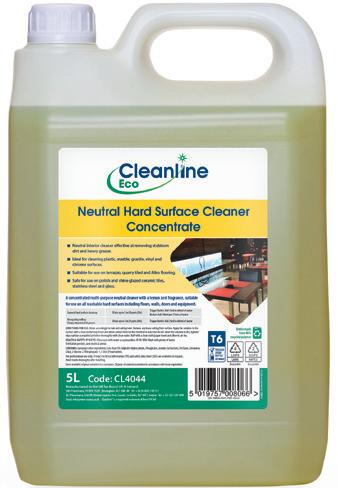
1 minute read
Award Winning
As climate statements come thick and fast from COP26, it is clear that waste remains endemic and one of the biggest global challenges today. The waste2zero awards recognise excellence in Waste Management and Prevention in the out of home sector and specifically give market-leaders a platform to showcase best practice and initiatives in this vital area.
In 2021, Bunzl UK & Ireland launched Cleanline Eco, a range of professional cleaning products developed to a new Eco Star standard, with the primary objective to promote responsible consumption and production, aim to protect life on land and water, and be effective for professional use. Designed to effectively tackle routine and periodic cleaning tasks in a catering and hospitality operation with a reduced impact on the environment, all products in the Cleanline Eco range are developed to a new Eco Star standard for sustainability. The Eco Star standard’s five sustainability pillars are: production, formulation, transportation, in-use and end of life.

The Eco Star standard was designed to set out clear and measurable sustainability attributes for cleaning products from point of production to their end of life. In the wake of Covid-19, the new Cleanline Eco range combines efficacy with a reduced impact on the environment, helping operators protect employees and customers and providing reassurance that they are returning to a safe and sustainable hospitality industry.



Bottle containers and angle-neck bottles in the Cleanline Eco range are manufactured with a minimum of 40% recycled plastic (HDPE), 750ml ready-to-use trigger spray bottles are manufactured with a minimum of 30% recycled plastic (PET). When finished, rinsed and with labels removed, empty containers, bottles and trigger spray heads can be placed in mixed recycling to be identified and segregated at a MRF (Material Recovery Facility).
At the waste2zero awards, an elite panel of judges, experts in waste, packaging and sustainability, reviewed innovations and initiatives from organisations large and small in areas such as resource management, closed loop, recycling and food redistribution. Clear leadership was evident from organisations in the sector who are demonstrating operational strategies that reduce waste impacts to the environment up and down supply chains.










